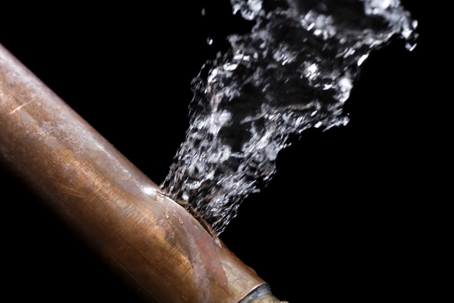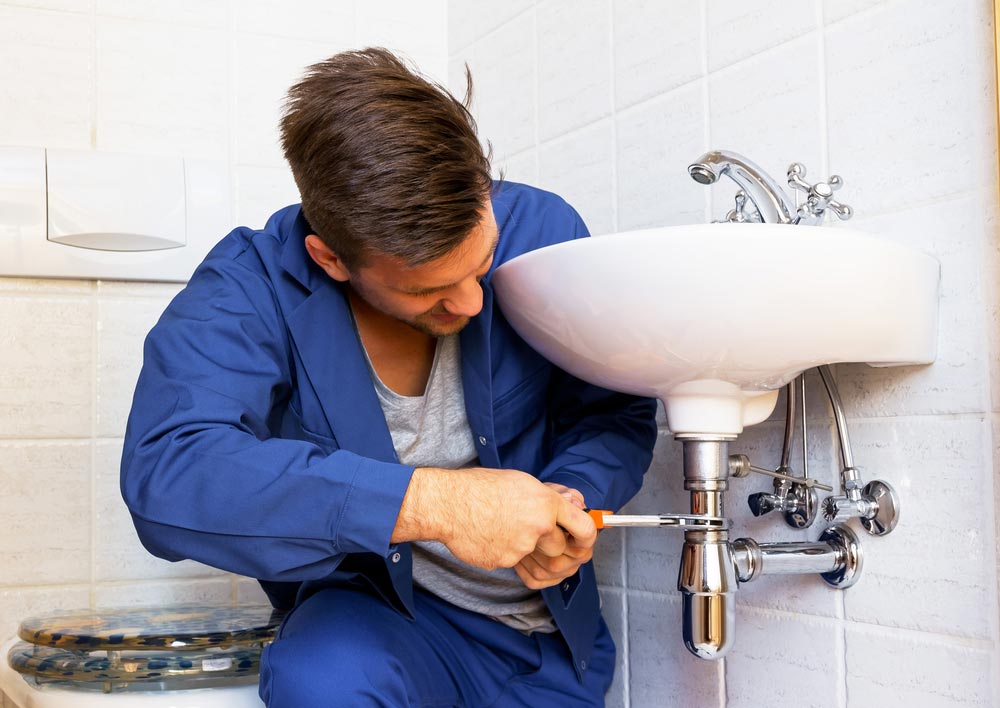Important Emergency Plumbing Advice to Follow Until Support Arrives
Important Emergency Plumbing Advice to Follow Until Support Arrives
Blog Article
What're your thoughts with regards to Plumbing Emergencies: Tips on What To Do Before?

Pipes emergencies can strike at any moment, triggering tension and prospective damage to your home. Whether it's a burst pipe, a blocked drain, or a leaky faucet, recognizing exactly how to handle the circumstance up until an expert plumbing arrives can save you from more difficulties. This write-up supplies necessary emergency situation plumbing tips to help you minimize damages and gain back control during a plumbing crisis.
Shut off the Supply Of Water
The very first step in any kind of pipes emergency is to shut off the water. For local problems, such as a leaking tap or toilet, turn off the shutoff near the fixture. In the case of a significant leakage or burst pipe, situate your home's primary water shut-off valve and transform it off promptly. Understanding the location of these shutoffs in advance can save valuable time throughout an emergency.
Shut Off Your Hot Water Heater
In specific emergencies, such as a ruptured pipe, it's wise to turn off your water heater. This protects against getting too hot or damage to the device when water stops streaming. Switch off the power supply to the hot water heater (electric or gas) and allow it cool off to stay clear of prospective risks.
Momentarily Stop a Ruptured Pipeline
A ruptured pipe can result in significant water damage in minutes. To alleviate the issue:
Call an expert plumber promptly to address the issue permanently.
Have an Emergency Plumbing Set
Prepare a basic plumbing emergency situation kit to take care of minor problems properly. Your kit ought to consist of:
Having these tools handy can make a substantial difference in your capability to take care of emergencies.
Unclog Drains Securely.
A blocked drainpipe can be a frustrating and messy problem. Below's how to tackle it:.
If these methods don't function, stay clear of using too much pressure, as it might worsen the blockage.
Manage Overflowing Toilets.
An overflowing bathroom can trigger instant turmoil. Below's what you need to do:.
Address Small Leaks with Temporary Fixes.
Tiny leakages can promptly come to be considerable issues if left unattended. Utilize these temporary fixes till specialist aid shows up:.
While these fixes aren't irreversible, they can assist reduce water loss and damage.
Take Care Of Frozen Water Lines Thoroughly.
In colder environments, icy pipes are an usual emergency situation. If you think an icy pipe:.
Know When to Call a Professional.
While quick fixes can aid briefly, certain pipes problems require immediate professional focus. Call a plumbing technician if:.
Without delay calling a professional makes certain the problem is resolved properly and prevents more problems.
Protect against Additional Damages.
Taking quick activity to reduce damage can conserve you time and money in the future. Here's just how:.
Final thought.
Pipes emergency situations can be overwhelming, but with the ideal expertise and tools, you can manage the circumstance properly till help shows up. By shutting off the water, addressing small leaks, and making use of temporary repairs, you can lessen damages and maintain your home safe. Bear in mind, these tips are short-term services; always seek advice from an accredited plumbing professional to handle the root cause of the problem. Preparation and quick thinking are your finest allies in any type of pipes emergency situation.
8 Helpful Tips for Managing Plumbing Emergencies at Home
If your plumbing system hasn’t failed once, wait for it because almost everyone has a story to tell. Sometimes, it could be simple emergencies such as a leaking pipe, a blocked cistern, or even a big burst pipe. In situations like this, you need to have some handy tips to save you some money and from possible damages.
Take care of minor issues early.
Sometimes, you could have avoided an emergency by taking proactive measures while it was still early. Some major plumbing emergencies can be a result of an ignored minor issue. We recommend that you have items like plumbing tapes and other related items. A plumbing tape can allow you to manage minor leaks before the plumber arrives.
Cut off the water supply.
This tip is essential in almost any type of leakage problem. For problems like minor leakages in the toilet or kitchen, turn off the supply that takes water to the affected pipes. If the leakage is a major pipe, you must shut off the supply valve to the entire building. This will help you avoid flooding your home and neighbors if you share a flat.
Know your plumbing system
Folks typically move into a new apartment without understanding the water supply around the building. This can prove disastrous if a water emergency arises and the plumber is far away. The previous tip will prove useless if you don’t practice this one. More importantly, know where your water shut-off valve is located – you’ll need that knowledge to prevent potential home floods.
Have some common handy tools
There are lots of plumbing emergencies that you can handle without hiring a plumber. That’s why you must keep some tools available always. Some tools that you can use to fix simple plumbing emergencies easily include plumbing tapes, screwdrivers, thread seal tapes, plungers, pliers, tape measures, and rubber gloves.
Insulate your pipes from cold
You’ll save yourself from many plumbing expenses if you protect your water pipes from the cold. This is because of the harmful effects that cold weather can have on your pipes. During winter, your pipes can burst from being overly expected to freezing temperatures. So, make sure insulators are there to keep the pipes working correctly.
Avoid practices that will clog your toilet.
Many people indulge in practices that can damage the plumbing system of the entire building. One of these is when they use their toilet to dispose-off garbage. They flush all kinds of things, such as paper towels, bandages, hairs, female sanitary products, etc., down the toilet. This will block your toilet in the long run, incurring unnecessary expenditures. Dump such waste in the trash instead.
Check your dials regularly.
Sometimes, there could be leakages in your home without noticing them in time. So, constantly monitor your water meter dial. If the dial is reading when there is nobody using water, this is an indicator that there is leaking. Check for leaks immediately. Call a plumber as soon as possible if you can’t find any.
https://www.constructionplacements.com/8-helpful-tips-for-managing-plumbing-emergencies-at-home/

I came across that post about What to Do While Waiting for an Emergency Plumber while looking around the search engines. So long as you appreciated our blog posting please make sure you remember to pass it around. Thank you so much for taking the time to read it.
Apply Now Report this page